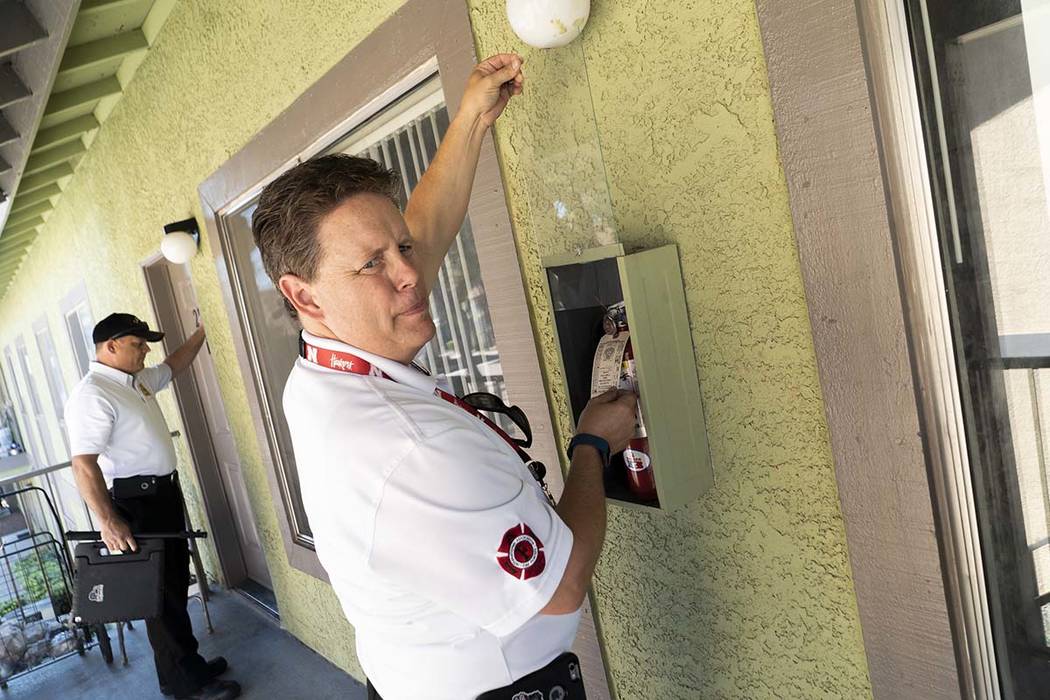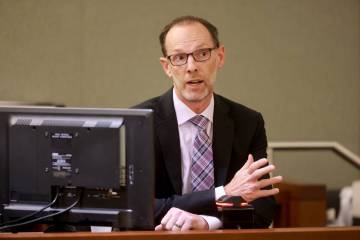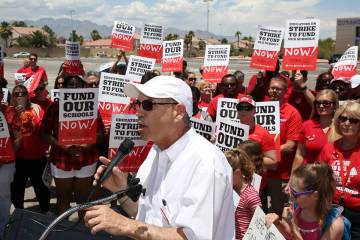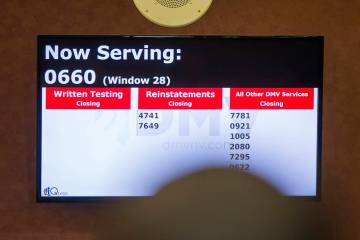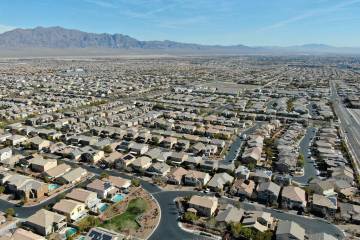EDITORIAL: Las Vegas’ urban core left behind on fire safety
The number of residential fire fatalities in the United States has been declining for decades thanks to the prevalence of smoke detectors, tighter building codes and better education efforts. But much of that progress has bypassed older structures often inhabited by less prosperous residents who have little option to move.
Las Vegas provides a case in point.
Over the past decade, 159 people have died in fires in the Las Vegas Valley. The great majority of them perished in residential blazes in older, poorer neighborhoods. “Fire safety in the valley’s urban core,” the Review-Journal’s Jamie Munks wrote in her recent four-part series on the issue, “has been left behind, sometimes with deadly consequences.”
This is simply unacceptable — particularly when reasonable and largely unobtrusive solutions to mitigate the dangers are available.
The Solaire Apartments on East Karen offer a microcosm of the problem. Ms. Munks reports that the complex has experienced more than 50 fires since 2011, including three this year. One of those fires, on Aug. 5, left 26-year-old Myriam Hernandez Estrada dead. Like many domiciles in the area, the apartments were built nearly 40 years ago, prior to the imposition of today’s more advanced safety standards. Unless landlords “are doing a significant renovation project or the building is changing uses,” Ms. Munks notes, “they are free to keep the building in line with codes that were in place when it was constructed.”
The temptation to raze such structures may be understandable, but that is unrealistic and ignores several other salient factors. Where would the displaced residents, many of them impoverished, go? In addition, if a landlord or homeowner has broken no laws and the structure is technically compliant, there are legitimate legal issues involving private property and the scope of municipal authority.
But there remain several steps that local fire officials and Southern Nevada’s governing entities can take:
■ Aggressively work with the owners of older, at-risk properties to upgrade fire safety systems. It simply isn’t feasible to demand that landlords and property owners retrofit with expensive sprinkler systems, as is now required for new construction in parts of the valley. But there are less expensive enhanced alarm devices that could significantly reduce the probability of loss of life. “If we judiciously pick some of this and work with our partners,” Las Vegas Deputy Chief and Fire Marshal Robert Nolan said, “we could go back to some of the existing buildings and require better systems.”
■ Make it a higher priority to beef up the number of fire inspectors and to focus on areas that have had repeated problems. Ms. Munks reports that Las Vegas has just 15 fire inspectors responsible for nearly 22,000 commercial and residential buildings. Mr. Nolan said he hopes a city residential inspector pilot program becomes permanent and will lead to new staff. County and city officials must make sure that the number of inspectors keeps pace with the demand — if that means sacrificing less-pressing budget matters, so be it.
■ Consider measures to increase accountability for property owners who consistently ignore serious dangers or have had a history of fire issues. Again, the challenge here is to avoid trampling on property rights or displacing renters who are unlikely to have many other options. But from a practical standpoint, landlords must be educated about the advantages of minimizing fire dangers as a means of attracting tenants and guarding against potential litigation. Ramping up education efforts for renters in high-risk areas would also be prudent.
Myriam Hernandez Estrada’s body was found in a second-floor apartment under debris. Her death was an unnecessary tragedy. But unless Las Vegas and Clark County develop a heightened sense of urgency when it comes to fire safety in older urban neighborhoods, it’s a tragedy most certainly to be repeated.



